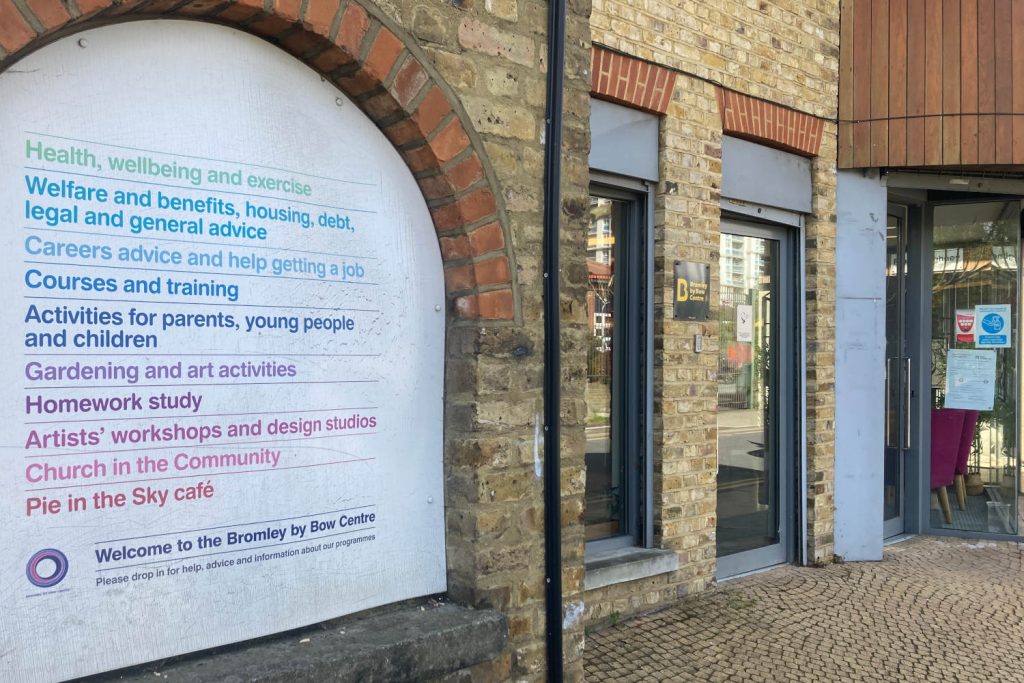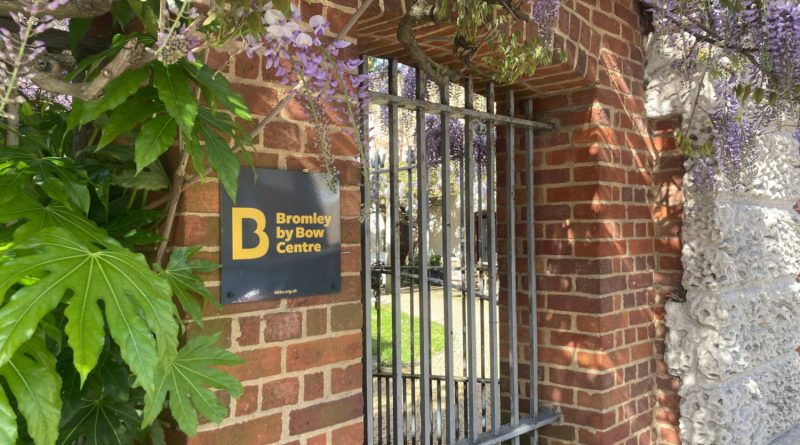Prescribing joy: Social prescribing and the future of community health in Tower Hamlets
Social prescribing, pioneered by organisations in Tower Hamlets, has revolutionised how we care for each other in the community but can it sustain itself?
Is there a neglected family antique sitting around your home? Are you tempted to learn to repair your grandfather’s clock for free? This is what Repair Cafés are doing across the borough this year. But these workshops are more than sustainable DIY sessions. They play a small role in a public care revolution. Tower Hamlets non-profits like the Bromley-by-Bow Centre and St Margaret’s House are local charities leading the charge.
Their programmes take an integrated approach to improving people’s lives, known as social prescribing. Though a light activity, Repair Cafés represent some of its key features – skills development, saving money and community bonding. Social prescribing is rooted in the idea that many factors – not all physical, influence health. Words like “holistic” or “wellbeing” often raise hackles, evoking the kind of healthcare reserved for a rich and famous elite. But tackling health inequality is at the heart of social prescribing. It connects people to free or subsidised services which support them. The pandemic fast-tracked a mental health crisis which still lingers. People are in dire need of support, as NHS resources are shrinking. This means social prescribing is more vital, but also more challenged than ever.
The NHS embraced the term in 2019 by partnering with GPs and charities to provide “link workers”. Research has shown that 1 in 5 people visit the GP with a non-clinical issue. Key workers offer emotional support, but also have knowledge specific to their local area. They can refer patients to nearby activities, groups and services from housing benefits to pension applications.

Bromley-by-Bow Centre (BBBC) is an international pioneer in social prescribing. Minister Andrew Mawson and his congregation founded it in 1984. They recognised that state services were failing to meet the community’s needs. It quickly became a neighbourhood hub, opening a café and renovating the local park. In 1997, the charity opened its own GP practice, the Healthy Living Centre. It is the first in the UK which patients own and rent to the NHS.
The centre has a team of social prescribers – not just one, which is often the case at GP surgeries. It has the advantage of providing many of the services to which it refers patients. The BBBC operates skills and business training, craft workshops and group activities to benefit body and soul. A similar charity, St Margaret’s House, runs a Creative Health Tree programme. It socially prescribes yoga or woodworking classes, plus services like massage therapy for free or at a much lower cost.
This approach to wellbeing has received international praise and there is evidence of its impact. In 2023, 39% of the BBBC’s social prescribing patients reported an improvement in their overall wellbeing. It helped new businesses access £100,000 of social investment, sustained 146 tenancies and guided households to receive £4.7 million worth of entitled income.
But it is difficult to measure the success of social prescribing. Its strengths are not easily quantified, because this approach works across different sectors, and adapts to suit individual locations. Building evidence is expensive too – especially for smaller organisations. Data studies cost money that largely is not there. Ironically, this lack of evidence can be a reason for organisations being denied funding.
Financial support usually blends public, private and charitable contributions. This means that centres like the BBBC are dependent, at least in part, on the will of politicians. If either the national government or local council fail to offer financial support to social prescribing projects, their work is at risk. Meanwhile, charities are still expected to pick up the pieces of a broken NHS, cost of living crisis and declining mental health. Link workers feel compelled to manage more patients than their time allows. This is because the public services to which patients should be progressing just aren’t available.
“We’re fooling ourselves if we think the magical solution is around the corner.”
elly de decker
The last year has pushed community-led organisations to the brink. Elly de Decker, Chair of the BBBC, says that the challenges they have faced are not unique. Instead, they represent a “long-term trend” of funding cuts which have impacted the entire voluntary sector. She also said that the “voluntary” label itself can be a setback. It feeds an idea of charity work as something that will always be there – regardless of whether or not organisations have the resources to run programmes and pay their professional staff.

De Decker is wary of being pessimistic, but highlighted the serious commitment to social prescribing required to keep it alive. Resources provided by central government in the early 2000s, and later local government, have dwindled. “The basic fact is that there is no money and it’s not easy to see where it will come from,” she said. Although NHS leaders continue to compliment social prescribing, their enthusiasm does not always reach smaller organisations. Changing political will, and complicated NHS bureaucracy, mean that funding “is not a given” for grassroots organisations.
Social prescribing can be the glue which binds communities together. But governing bodies need to value this framework, and make funds made accessible to smaller organisations. This was De Decker’s summary: “All of us have seen an increasing number of people, increasing complexity of the people we are dealing with, while our resources are not going in the same direction […] We’re fooling ourselves if we think the magical solution is around the corner.”
There must be frank conversations between government representatives, the NHS and the voluntary organisations upon which they have come to rely, but not necessarily appreciate. Meanwhile, non-profits will keep the flame burning.
As de Decker said: “At the end of the day the centre is about joy, community and making connections. Everyday feels like a battle but there is a lot of energy – despite the hard times, there is a lot of joy.”

